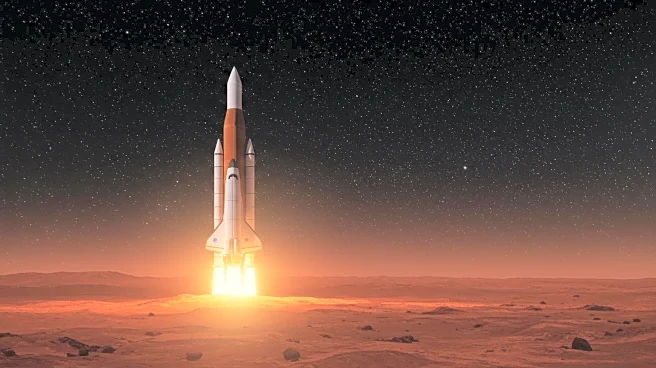What's Happening?
The ongoing space race led by billionaires Elon Musk and Jeff Bezos is under scrutiny, particularly regarding the feasibility of colonizing Mars. Musk envisions a self-sustaining settlement on Mars as a contingency for Earth, while Bezos proposes moving polluting industries to space. However, experts like astrophysicist Adam Becker argue that Mars is inhospitable, with challenges such as radiation and lack of breathable air. Becker's critique is part of a broader discussion on the practicality and ethics of space colonization.
Why It's Important?
The debate over Mars colonization raises critical questions about resource allocation and the priorities of technological advancement. While space exploration has potential benefits, the focus on Mars as a 'Plan B' for humanity is contentious. Critics argue that efforts should be directed towards solving Earth's pressing issues rather than investing in uncertain extraterrestrial ventures. This discourse impacts public perception of space initiatives and could influence future funding and policy decisions.
Beyond the Headlines
The fascination with Mars reflects deeper cultural narratives about exploration and survival. However, the ethical implications of prioritizing space colonization over addressing terrestrial challenges are significant. The conversation also touches on the role of private enterprise in shaping humanity's future, highlighting tensions between profit motives and public good. As space becomes a new frontier for competition, the balance between innovation and responsibility remains a pivotal concern.










